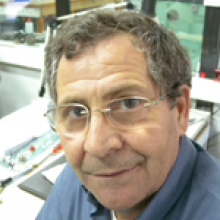
Education
- 2011, B.Eng., Departement of Electrical and Computer Engineering, University of Patras
Interests
- modelling
- semiconductor device physics
- Electrical characterization


Education
- 1987, B.Sc. in Physics, Department of Physics, University of Crete, Greece
Career
- 06/1988 - today, Technical Research staff in Microelectronic Research Group, FORTH - IESL, Greece
- 09/1987 - 05/1988, Research assistant at Department of Physics, Kansas State University, Manhattan Kansas, USA
Interests
- High Resolution X-ray Diffraction
- Atomic Force Microscopy, Scanning Tunneling Microscopy
- Scanning Electron Microscopy
- Transmission Electron Microscopy
- Energy Dispersive X-ray Spectroscopy
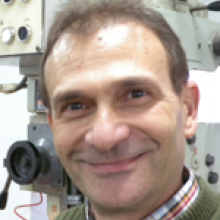

This person has invoked GDPR right to secrecy
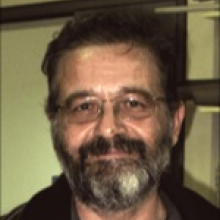
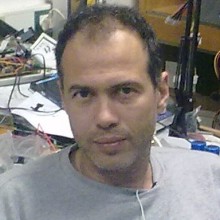
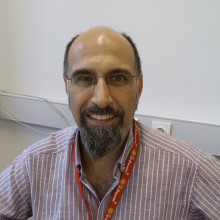
Lampros Papoutsakis is a Physicist graduated from the Physics Department of the University of Crete (1998). After completed his Master’s Degree (2002) in Microelectronics-Optoelectronics (University of Crete) he joined IESL-FORTH (2002). He has been involved in several research projects providing divert services, both in Technical support and Research involvement. The first includes operation, handling and student training in numerous instruments and techniques like XRD, DSC, TGA, FT-IR, Raman/UV-Vis spectroscopies, Surface Tension, Optical and Electronic Microscopy (TEM/SEM) and laboratory support. The latter relates with research projects in the areas of smart polymeric surfaces, responsive polymeric nanoparticles, polymer blends for solid electrolyte applications.
Education
- 2002, Master's Degree Microelectronics-Optoelectronics University of Crete (UoC)
- 1998, Bachelor in Physics University of Crete (UoC)
Career
- 02/2004 - Today Research Assistant at Hybrid Nanostructures Group, FORTH - IESL, Greece
- 01/2003 - 01/2004 Trainee at Polymer Group, FORTH - IESL, Greece
Awards/Prizes/Distinctions
- 1998 "Summer School of Advanced Physics" Physics Department (UoC) Award - Fellowship



